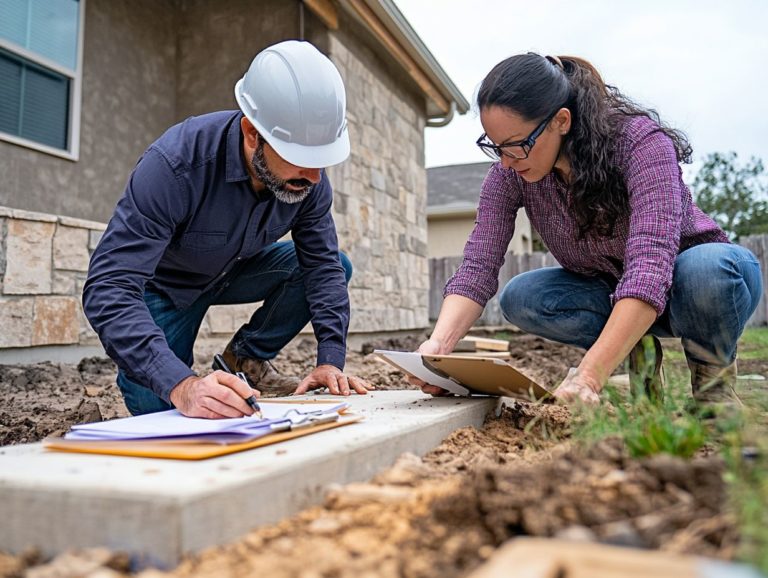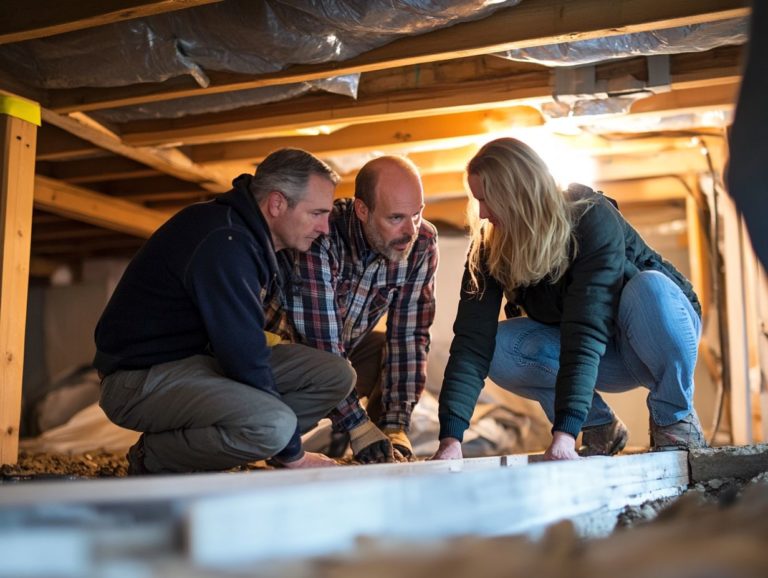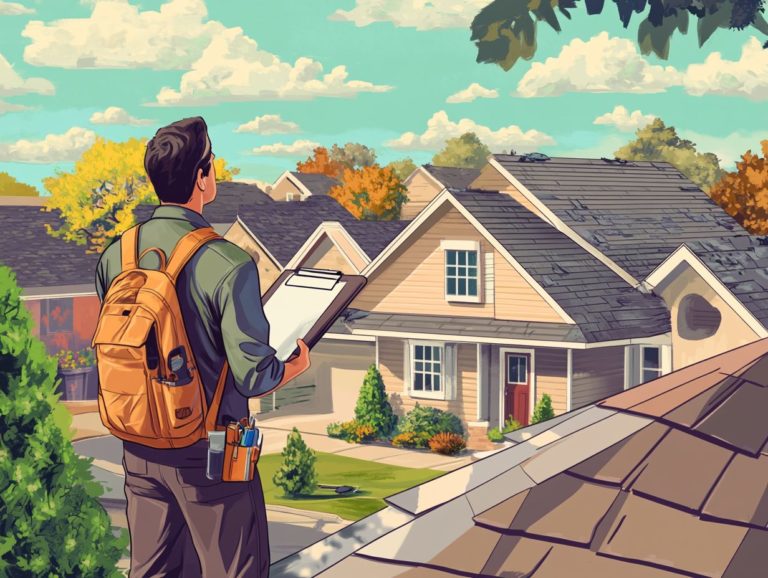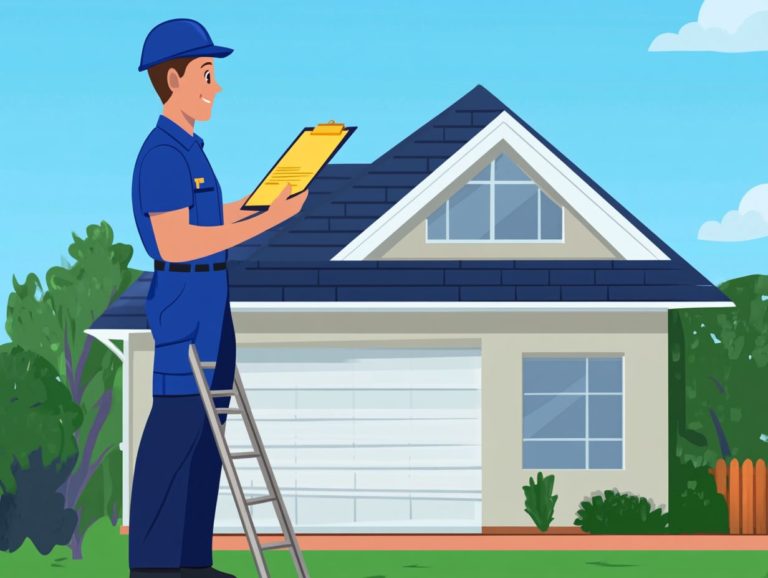5 Essential Home Inspection Tips for Sellers
Selling your home is an exhilarating yet challenging endeavor, especially when it comes to making it shine in a competitive market.
Here are five essential home inspection tips every seller should keep in mind. By addressing necessary repairs, enhancing how your home looks from the street, and being transparent with professional inspections, you can attract potential buyers and elevate your selling experience.
Dive into these indispensable steps to ensure your home is primed for success.
Contents
- Key Takeaways:
- 1. Make Necessary Repairs Before Listing Your Home
- 2. Clean and Declutter Your Home
- 3. Improve Your Curb Appeal
- 4. Be Transparent About Any Known Issues
- 5. Hire a Professional Home Inspector
- Why Is a Home Inspection Important for Sellers?
- What Are the Most Common Issues Found During a Home Inspection?
- How Can a Seller Prepare for a Home Inspection?
- What Are the Benefits of Getting a Pre-Listing Home Inspection?
- How Can a Seller Negotiate Repairs After a Home Inspection?
- What Are the Legal Implications of Not Disclosing Issues Found During a Home Inspection?
- Frequently Asked Questions
- What are the 5 essential home inspection tips for sellers?
- How can preparing for the inspection in advance help sellers?
- Why is it crucial for sellers to make necessary repairs before a home inspection?
- How does cleaning and organizing the home help sellers during a home inspection?
- Why is providing easy access to all areas important during a home inspection?
- Should sellers be present during a home inspection?
Key Takeaways:
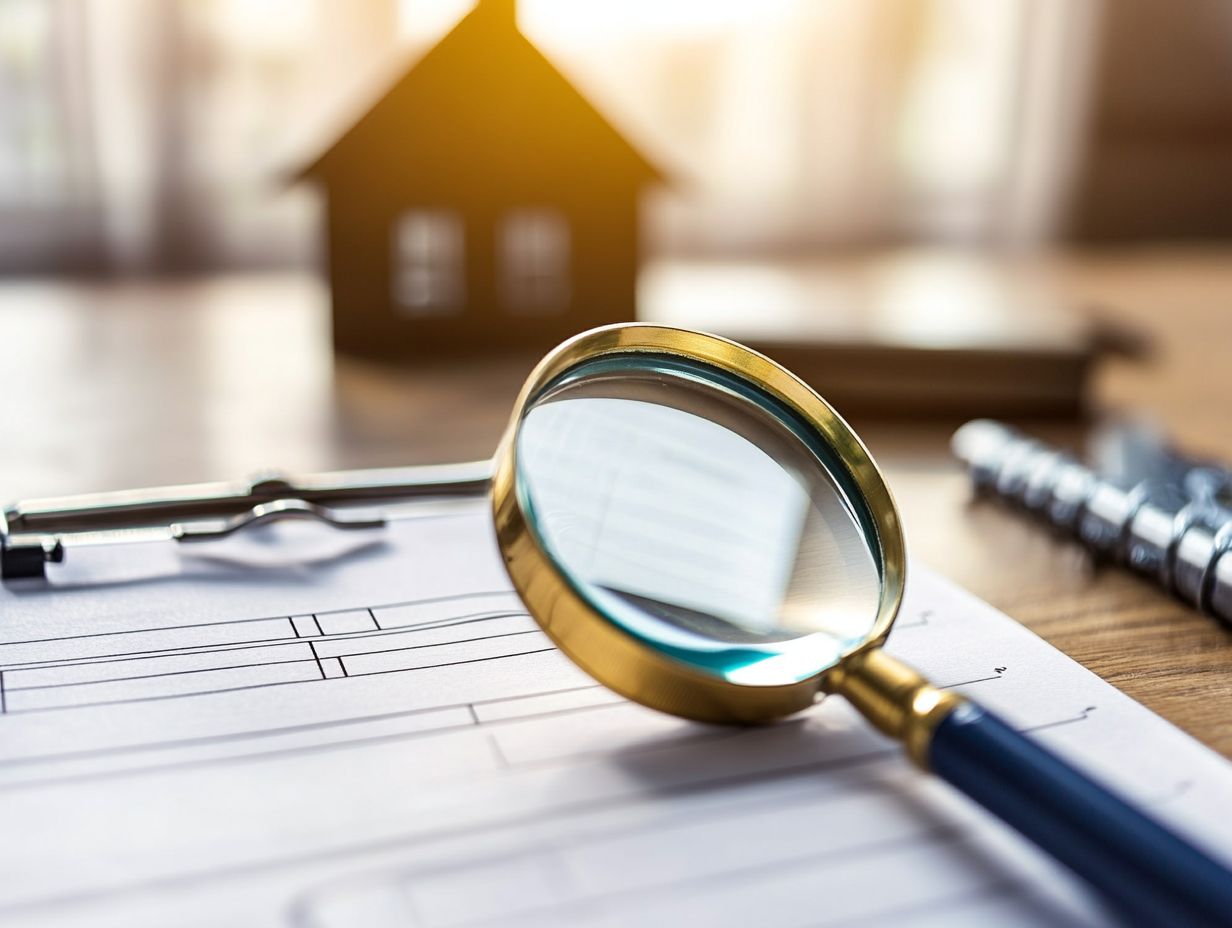
Repair any issues before you list your home. This helps avoid surprises and attracts more buyers.
Keep your home clean and clutter-free to impress potential buyers.
Hire a home inspector to catch problems early. Fixing them can save you time and money later.
1. Make Necessary Repairs Before Listing Your Home
Making repairs is a must! It can make a huge difference in buyer interest and the overall condition of your property, influencing its market value and appeal during inspections.
Potential buyers expect a property to be in good shape, and even minor issues like leaky faucets or peeling paint can raise red flags during a home inspection. By proactively addressing these common problems, you can boost your property s value and minimize negotiations.
Regular maintenance not only preserves your home but also reflects the care you ve invested, showcasing it as a well-kept investment. Presenting a move-in ready home can lead to quicker sales and possibly higher offers.
2. Clean and Declutter Your Home
A clean and decluttered home creates inviting first impressions that are essential for attracting potential buyers.
By ensuring every room is tidy and removing unnecessary items, you enhance your property’s appeal significantly.
Attention to detail, like cleaning the gutters, protects your home from water damage and shows buyers you care.
Clear access to key areas like hallways and living spaces allows buyers to navigate your home easily, helping them envision their lives there.
By taking these practical steps, you not only demonstrate your property’s potential but also create a positive emotional connection, transforming it from just a house into a place buyers can envision calling home.
3. Improve Your Curb Appeal
Enhancing your home’s exterior is crucial for captivating potential buyers, as it sets the tone for their entire home inspection experience.
A well-maintained exterior dramatically elevates overall impressions, leaving a lasting impact on prospective purchasers. Focus on key elements like landscaping think vibrant flowers and neatly trimmed shrubs.
A fresh coat of paint on doors and shutters can modernize your home’s fa ade, while thoughtful updates like outdoor lighting can add a polished touch.
Remember, how your home looks from the street goes beyond aesthetics; it plays a vital role in shaping buyer perceptions and potentially influencing your market value.
4. Be Transparent About Any Known Issues
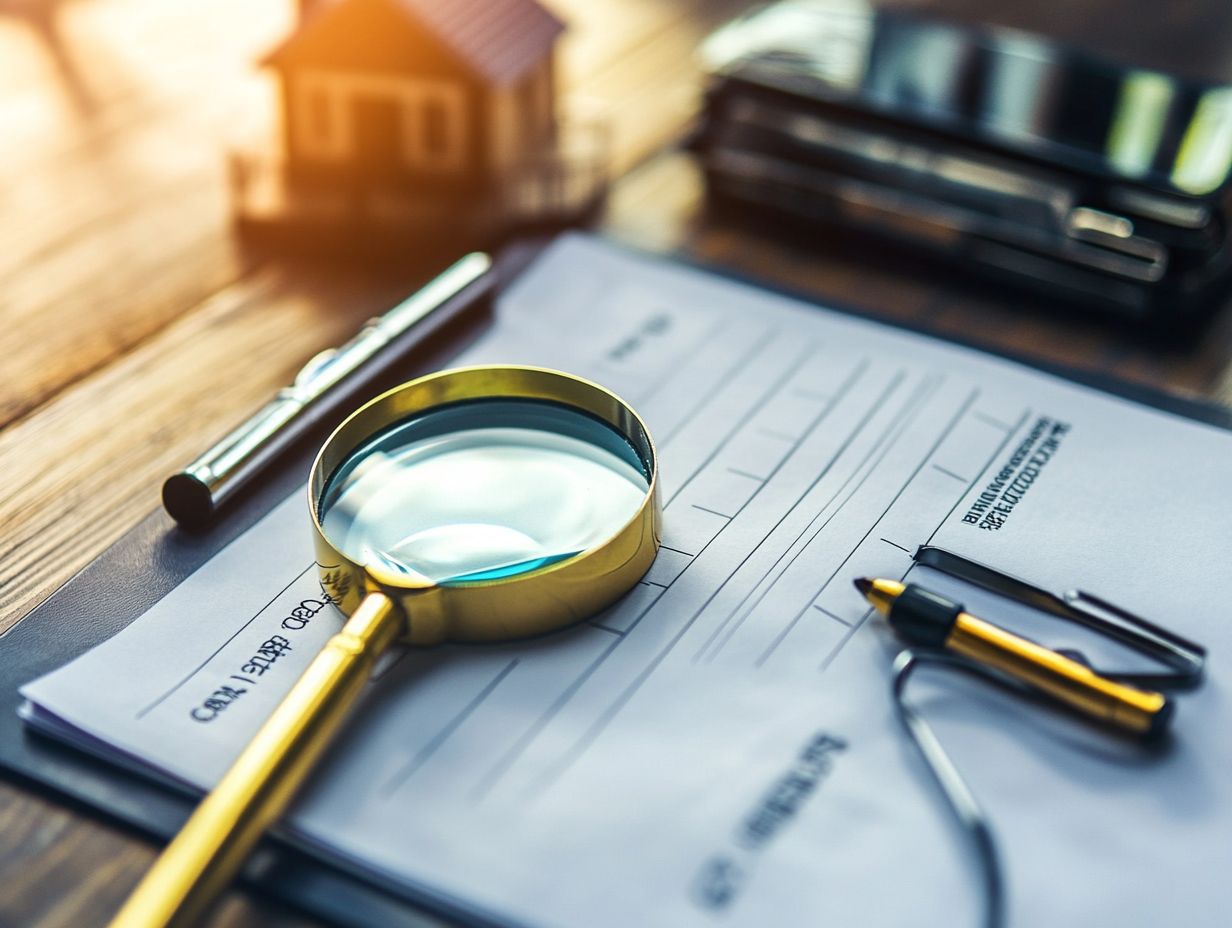
Transparency about any known issues during the home-selling process is not just ethical; it helps you communicate better with potential buyers, building trust and paving the way for a smoother transaction.
When you openly disclose problems, such as plumbing issues or roof repairs, it positively impacts the home inspection report. Buyers will appreciate being informed, allowing them to feel secure in their decisions.
Clear communication leads to better negotiations, where both parties engage openly, discussing terms and repairs without any hidden surprises lurking in the shadows.
Withholding critical information can create strained relationships and even lead to legal troubles if a buyer feels deceived after the purchase. By keeping the dialogue about the home s condition candid, you reduce misunderstandings and strengthen your negotiating position, creating a more favorable atmosphere for everyone involved.
5. Hire a Professional Home Inspector
Hiring a professional home inspector is a savvy decision that provides you with an in-depth home inspection report, enabling you to tackle common issues and prepare for buyer inspections with confidence.
This comprehensive report not only identifies existing concerns but also serves as a valuable inspection checklist, acting as a roadmap for your ongoing home maintenance.
You can strategically plan your maintenance schedule, ensuring that potential problem areas are monitored and addressed proactively.
By catching issues early, you can save significantly on costly repairs and enhance your home’s value an especially smart move when it s time to sell.
Ultimately, engaging a home inspector gives you the power to take charge of your property s upkeep, leading to a safer, more comfortable living environment.
Why Is a Home Inspection Important for Sellers?
A home inspection is essential for you as a seller, offering valuable insights into your home’s condition and pinpointing crucial repairs. To ensure you’re ready, check out this guide on how to prepare for a home inspection as a seller, which can help boost its value and attract more buyers.
This boosts your property’s appeal and simplifies the selling process. By being proactive and addressing any issues before listing your home, you present a well-maintained property that stands out in a competitive market.
This level of transparency builds trust with potential buyers and reduces the chances of those last-minute negotiations that can pop up from unexpected discoveries.
Knowing your property’s strengths and weaknesses allows you to price it confidently. Act now to seize the market advantage!
In the end, a thorough inspection provides you with the knowledge necessary to make informed decisions throughout the sale, leading to a more efficient and less stressful experience.
What Are the Most Common Issues Found During a Home Inspection?
During a home inspection, you re likely to encounter several common issues, such as problems with home utilities, heating, ventilation, and air conditioning (HVAC) systems, plumbing, and electrical systems. Each of these can significantly influence your decision as a buyer.
These complications raise not just immediate repair concerns but also point to potential larger issues that could surface later. For example, an outdated HVAC system might result in inefficient energy use and inflated utility bills, while plumbing and electrical problems can pose genuine safety hazards.
It’s only natural for you to feel hesitant if you sense the possibility of costly repairs or complications ahead. Sellers can improve safety and comfort by addressing these concerns early, increasing the market appeal of the property. Understanding the benefits of home inspections for sellers makes the property much more attractive to discerning buyers who value a well-maintained residence.
How Can a Seller Prepare for a Home Inspection?
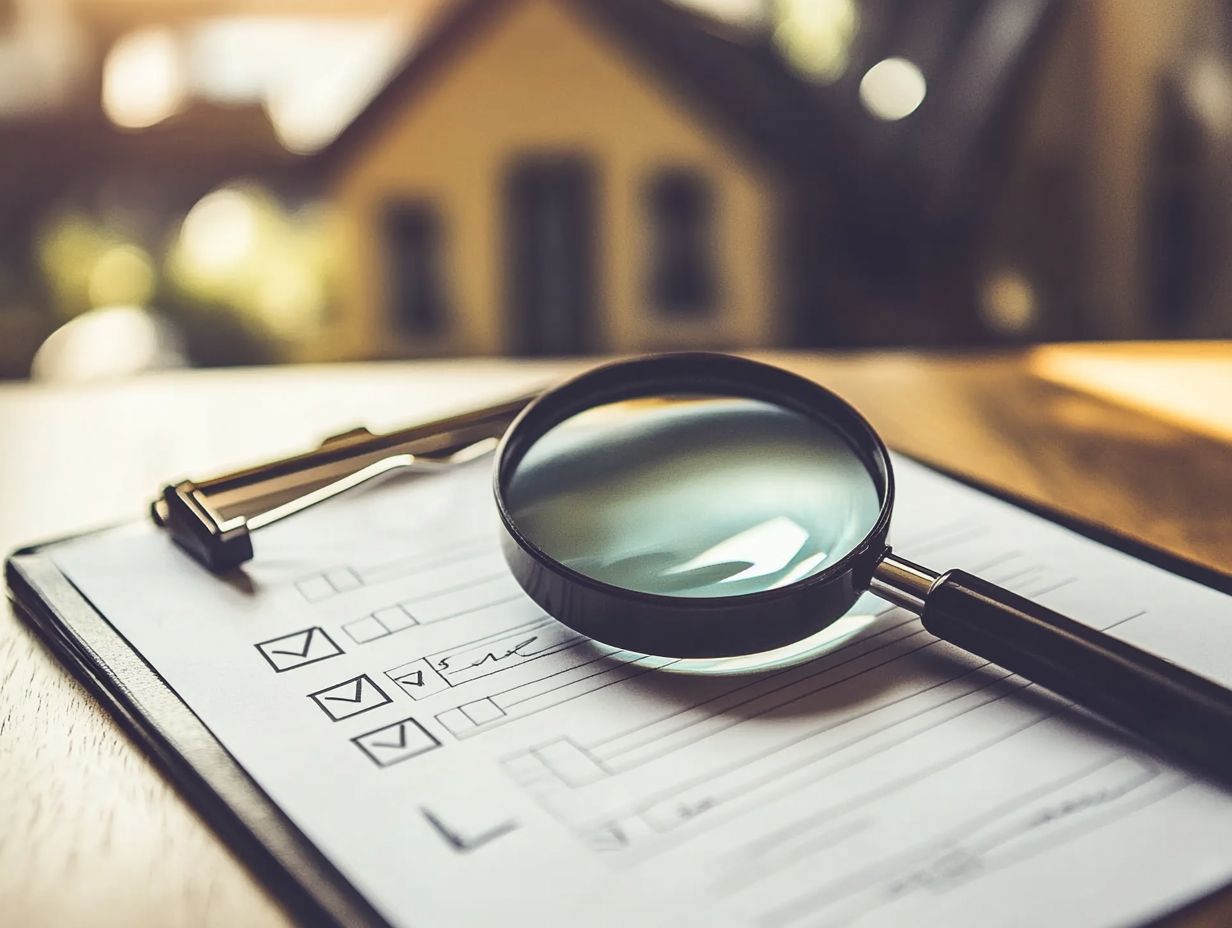
Preparing for a home inspection requires a thoughtful approach. Proactive steps like completing a home maintenance checklist and organizing your space are essential for understanding the home inspection process for sellers.
These preparations can significantly impact the inspection’s outcome. For instance, consider cleaning the gutters to avert any potential drainage issues that might raise red flags for inspectors.
Decluttering your living areas not only creates a friendly environment but also allows the inspector to conduct a thorough examination without obstacles. By ensuring all spaces from attics to basements are tidy and accessible, you instill confidence in the property s overall condition.
Attention to detail leads to a better assessment and a smoother sales process.
What Are the Benefits of Getting a Pre-Listing Home Inspection?
Obtaining a pre-listing home inspection gives you a detailed report that highlights any potential defects before buyers conduct their inspections. This foresight allows you to make timely repairs and enhances your negotiating strength during negotiations, especially when combined with 5 home staging tips for first-time sellers.
This strategy clarifies the property s condition and allows you to proactively address issues, minimizing surprises later in the process.
By being open about your home’s condition, you foster greater trust with prospective buyers, boosting their confidence in their purchase decision. Effectively managing repairs showcases your commitment to maintaining the property, which can lead to smoother transactions and potentially higher sale prices.
A pre-listing inspection serves as a strategic tool that gives you the power, making your home-selling journey more efficient and favorable. Knowing 5 things to know about home inspections can further enhance your selling strategy.
How Can a Seller Negotiate Repairs After a Home Inspection?
After a home inspection, your ability to communicate effectively becomes essential as you navigate the negotiations surrounding the repairs noted in the inspection report.
It s important to ensure that critical repairs are addressed while keeping buyer interest intact. By engaging in open dialogue with potential buyers, you can foster trust and clarify the reasoning behind each repair request.
Understanding what the buyers prioritize is key; some may focus on structural issues, while others might lean toward cosmetic enhancements. Active listening enables you to tackle specific concerns head-on, providing solutions that resonate with their needs.
This approach not only clears up any misunderstandings but also showcases your willingness to cooperate, significantly increasing the likelihood of a smooth transaction while preserving goodwill.
What Are the Legal Implications of Not Disclosing Issues Found During a Home Inspection?
Failing to disclose issues discovered during a home inspection can expose sellers to serious legal ramifications, including potential lawsuits and a damaged reputation throughout the selling process.
When sellers choose to withhold critical information about significant defects such as plumbing issues or structural damage they risk facing claims from buyers who feel misled. Legal obligations require the full disclosure of known issues, and neglecting this duty can result not only in financial penalties but also in complicating future transactions.
Today s buyers are more informed and aware of their rights, often leading them to pursue legal action if they suspect deception. A seller found liable for non-disclosure may discover that their past choices could severely undermine their credibility in future sales, turning the process into a far more daunting endeavor.
Frequently Asked Questions
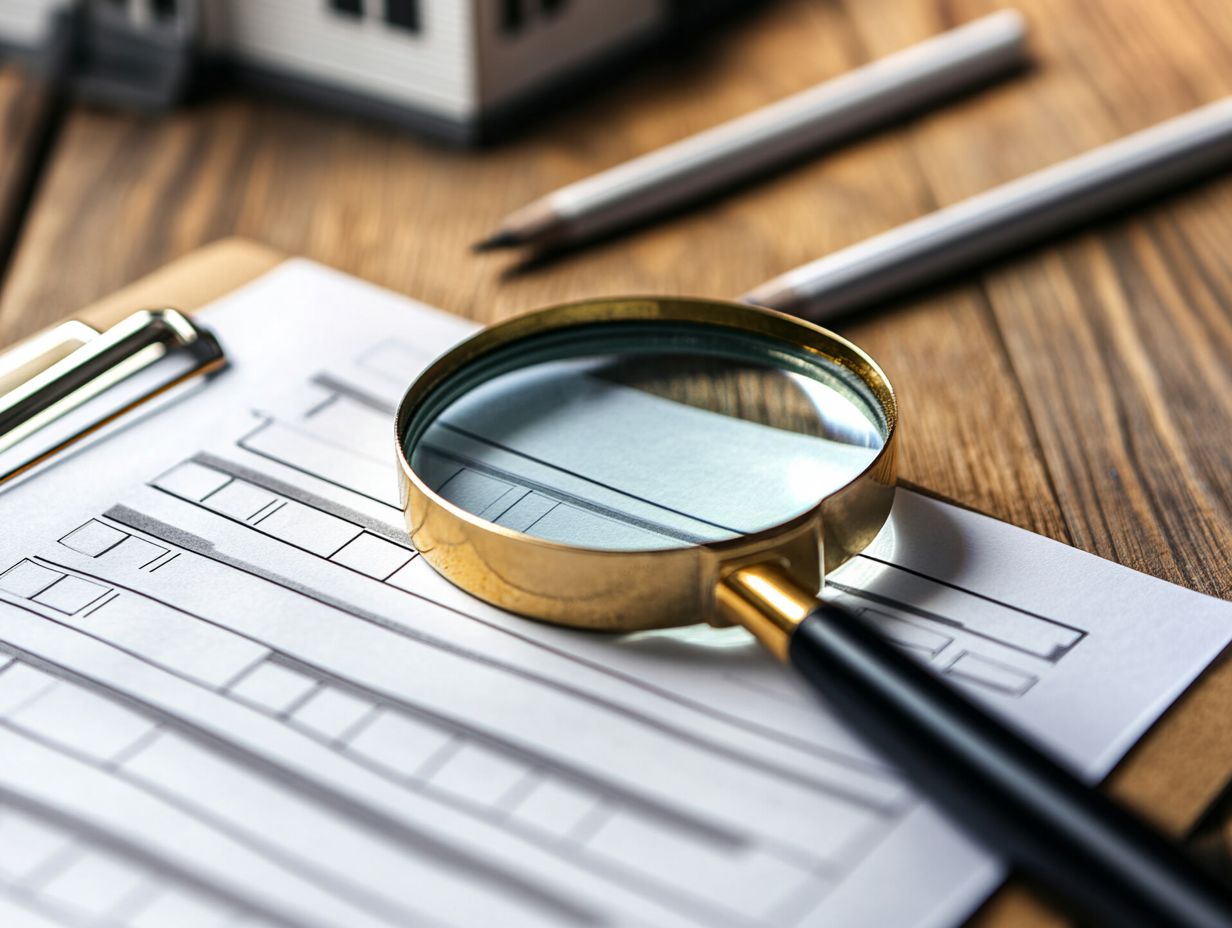
What are the 5 essential home inspection tips for sellers?
The 5 essential home inspection tips for sellers are:
- Prepare for the inspection in advance.
- Make necessary repairs.
- Clean and declutter your home.
- Provide easy access to all areas.
- Be present during the inspection.
Ready to prepare for your home inspection? Start implementing these tips today!
How can preparing for the inspection in advance help sellers?
Preparing for the inspection in advance helps sellers address potential issues that may arise. This proactive approach can prevent surprises and leaves buyers with a better first impression of the home. For more insights, check out these tips for a smooth home inspection experience.
Why is it crucial for sellers to make necessary repairs before a home inspection?
It’s crucial for sellers to make necessary repairs before a home inspection, as this can highlight the value of home inspections for home sellers and prevent potential buyers from walking away or negotiating for a lower price.
How does cleaning and organizing the home help sellers during a home inspection?
Cleaning and organizing the home helps the inspector access important areas easily. A tidy space also shows buyers that the home is well cared for.
Why is providing easy access to all areas important during a home inspection?
Providing easy access to all parts of the home is vital during a home inspection. This allows the inspector to thoroughly assess the property’s condition, including areas like the attic, crawl space, and electrical panel.
Should sellers be present during a home inspection?
Yes, sellers should be present during a home inspection. This presence allows them to answer any questions from the inspector and provide additional information about the home. It also demonstrates to potential buyers that the seller is transparent and ready to address concerns about the property. To ensure a smooth process, consider following these 5 tips for a productive home inspection.


